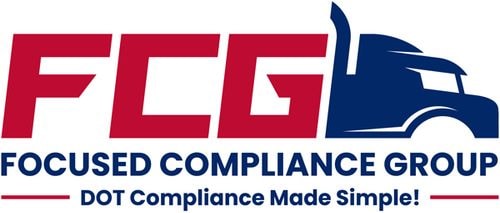The transportation industry is on the brink of a major shift. The Federal Motor Carrier Safety Administration (FMCSA) has announced that beginning October 1, 2025, it will discontinue the issuance of MC Numbers—also known as Motor Carrier Numbers—and transition entirely to a USDOT-only identifier system under the Unified Registration System (URS).
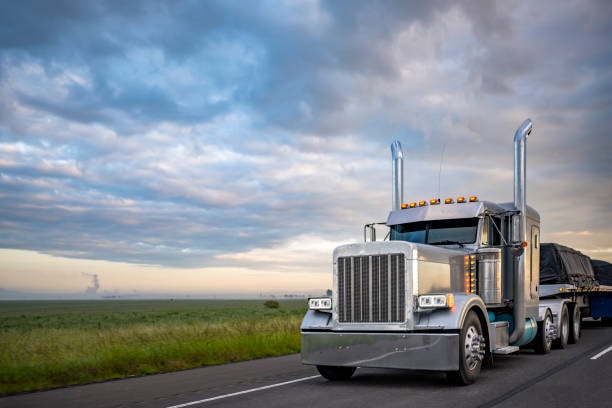
This move marks one of the most sweeping changes in recent years to FMCSA’s registration and oversight processes. The FMCSA system will now use the DOT number as the primary identifier for all registered entities, making DOT registration essential for compliance. And for carriers, brokers, and compliance partners, the implications are far-reaching.
Here’s a complete breakdown of what this change means, why it’s happening, and how to prepare your business to stay compliant and competitive in the evolving regulatory landscape. Companies operating commercial vehicles that cross state lines will need to ensure their DOT registration is complete and that they are properly registered in the FMCSA system.
While the DOT number itself is free, there are application fees and other costs associated with obtaining operating authority, and businesses should be aware of the fee structure when planning for compliance.
Understanding the Role of MC Numbers
MC Numbers have long served as the FMCSA’s way of identifying entities operating in interstate commerce. Typically assigned to for-hire carriers, brokers, and freight forwarders, these numbers indicate that a company has obtained the necessary authority to operate across state lines. While both MC Numbers and USDOT Numbers are required for many trucking businesses, the DOT and MC number serve different purposes: the USDOT Number is used to track safety and compliance, while the MC Number (motor carrier number) is needed for companies that transport regulated commodities or passengers for hire in interstate commerce. You need an MC number if your company operates as a for-hire carrier across state lines or handles certain types of freight.
MC Numbers have traditionally been used in tandem with USDOT Numbers, appearing on filings such as BOC-3 designations, insurance certificates, and operating agreements. The motor carrier number (MC number) is an essential identifier for companies that require federal operating authority, especially those engaged in interstate transportation.
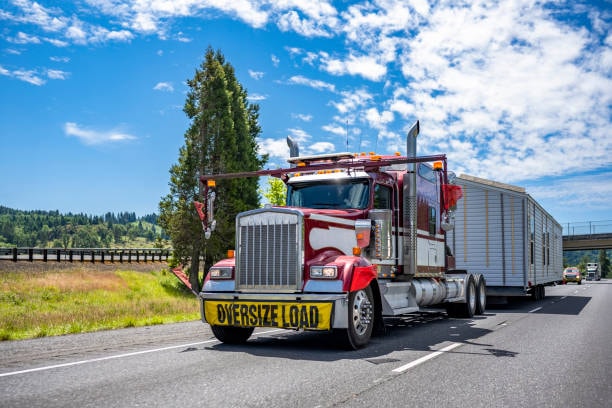
There are different types of operating authority and classifications within the trucking industry, and these determine the specific requirements for each company.
The Shift Toward a Unified Identifier
The FMCSA has made clear its intention to simplify and modernize its registration system. The elimination of MC Numbers is a key component of this effort, which centers on the full implementation of the Unified Registration System (URS).
Instead of using separate identifiers for authority (MC) and safety oversight (USDOT), all entities will now operate under a single USDOT Number, with suffixes added to identify the type of operating authority held—such as for-hire carrier, broker, or freight forwarder. Some businesses may only need one classification, while others may require multiple classifications depending on their operations, which can impact the total application fees. These application fees are non-refundable and are an important consideration when selecting the correct operating authority during the FMCSA authorization process.
Why the Change Is Being Made
The FMCSA has outlined several goals in consolidating identifiers:
- Efficiency: Fewer numbers mean less confusion and simplified compliance management.
- Fraud Prevention: Consolidating all operations under a single number makes it more difficult for carriers with poor safety records to rebrand and reopen under new MC Numbers.
- Improved Safety Oversight: Tracking authority, insurance, and safety performance under a single number makes audits and enforcement more effective.
- Alignment with Technology: The centralized URS database is better suited to modern, digital workflows.

What the New System Looks Like
Under the new system, USDOT Numbers will remain the central identifier. However, authority classifications will be handled through suffixes, which indicate the type of cargo or items a company is permitted to carry under its operating authority. Examples may include:
- FH – For-Hire Motor Carrier
- BK – Broker
- FF – Freight Forwarder
- HH – Household Goods Carrier
For example, a company authorized to carry household goods would use the “HH” suffix to show it is permitted to carry those specific items.
FMCSA is expected to issue formal guidance with a complete list of suffixes closer to the implementation date.
Types of Authority: What You Need to Know
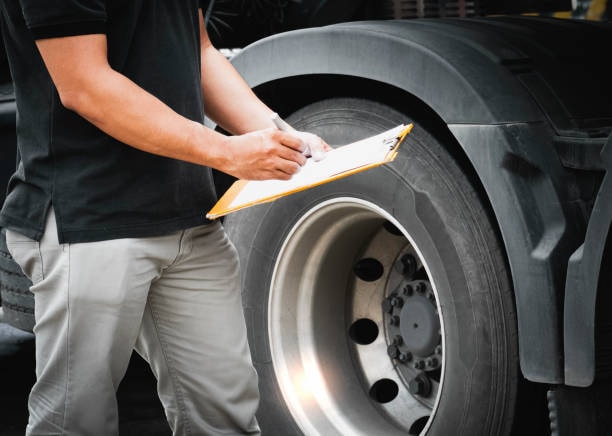
The Federal Motor Carrier Safety Administration (FMCSA) grants several types of operating authority, each tailored to the specific needs of different trucking businesses. Understanding these distinctions is essential for motor carriers to ensure they are operating within the bounds of federal motor carrier safety regulations and avoiding unnecessary costs or compliance issues.
The most common types of authority include:
- MC (Motor Carrier) Authority: Required for carriers transporting regulated commodities for hire in interstate commerce. This authority comes with requirements such as maintaining proper insurance coverage, designating a process agent, and paying registration fees.
- FF (Freight Forwarder) Authority: For businesses that arrange the transportation of goods and assume responsibility for the cargo, often consolidating shipments. Freight forwarders must also meet specific insurance and process agent requirements.
- MX (Mexico-based Carrier) Authority: For carriers based in Mexico operating in the U.S., with unique regulations and additional compliance steps.
Each type of authority has its own set of regulations, insurance requirements, and operational costs. Trucking businesses must carefully determine which authority aligns with their operations to ensure compliance with the Motor Carrier Safety Administration and to avoid unnecessary fees or regulatory complications. Selecting the right authority from the start streamlines the registration process and helps maintain smooth, legal operations.
Who This Change Affects
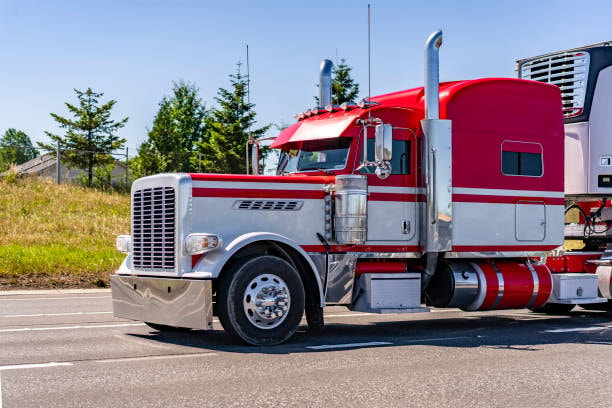
This rule change applies broadly across the commercial transportation landscape. Those directly impacted include:
- Trucking companies and their drivers
- For-hire motor carriers
- Property and household goods brokers
- Freight forwarders
- Carriers seeking new interstate authority
- Third-party compliance service providers
Even if your company does not actively use its MC Number today, if it appears on documentation, that reference will need to be updated.
Operating in Interstate Commerce: What Changes?
For motor carriers operating in interstate commerce, the transition to a USDOT-only system brings important updates to the way authority is granted and maintained. Interstate operating authority from the FMCSA is essential for any carrier transporting goods or passengers across state lines, and it comes with a set of federal regulations designed to ensure safety and accountability.
Under the new system, carriers must:
- Obtain a USDOT number, which serves as the unique identifier for the company in all FMCSA systems.
- Register for the appropriate operating authority, now tracked through the USDOT number with a specific suffix.
- Maintain required insurance coverage, including liability and cargo insurance, to protect both the carrier and its customers.
- Comply with federal regulations such as hours of service, vehicle maintenance, and cargo securement standards.
Registering with the FMCSA and keeping your USDOT number and authority information up to date is essential for legal operation in interstate commerce. Carriers must ensure they meet all requirements before transporting goods or passengers across state lines to avoid penalties and disruptions to their business.
The Official Implementation Timeline
FMCSA has set the official effective date for this change as October 1, 2025. After this date:
- No new MC Numbers will be issued.
- All new operating authority will be granted under the USDOT Number with a suffix.
- Existing MC Numbers will still be recognized for a period, but they will no longer be issued or required on new filings.
FMCSA is expected to begin phasing out references to MC Numbers on public databases in 2026 or beyond.
Impacts on Daily Operations

This change will impact many facets of how carriers and brokers conduct business. Operational areas that will need review include:
- Dispatch software and databases
- Client contracts and rate confirmations
- Insurance filings and BOC-3 designations
- Authority verification procedures
- Invoicing and documentation templates
- Updating records and compliance procedures for commercial vehicles, and ensuring all driver certifications are current
Companies should begin a phased transition now to avoid disruption in business continuity.
Compliance and Verification Procedures
For decades, shippers and brokers have used MC Numbers to verify authority through FMCSA portals like SAFER and the Licensing and Insurance (L&I) site. With the change, these systems will be updated to support USDOT Numbers and suffixes as the primary authority check.
Your team will need to be trained to conduct verifications using only the USDOT Number moving forward. It is also essential to maintain up-to-date DOT registration to ensure compliance verification and avoid potential fines.
The Importance of DOT Numbers in the New Era

As the FMCSA eliminates MC numbers, the USDOT number becomes the cornerstone of compliance and identification in the trucking industry. This unique identifier is now the sole reference point for tracking a motor carrier’s operating authority, insurance coverage, and safety performance.
The USDOT number is used by the FMCSA to monitor safety records, conduct compliance reviews, and investigate crashes. It also serves as the primary means for shippers, brokers, and regulators to verify a carrier’s authority and insurance status. With the new system, it is more important than ever for motor carriers to ensure their USDOT number is accurate, current, and properly displayed on all documentation and vehicles.
Maintaining up-to-date USDOT number information is essential for uninterrupted operations, smooth compliance reviews, and continued eligibility to operate in interstate commerce. As the industry adapts to this change, the USDOT number will be the key to demonstrating compliance with federal regulations and maintaining a strong reputation in the trucking business.
First Time Applicants: Navigating the New Process
For first time applicants, obtaining a USDOT number and operating authority under the new system may seem daunting, but understanding the process is essential for launching a compliant trucking business. The application process begins with registering through the FMCSA’s Unified Registration System, where you will provide business details, select the appropriate operating authority, and submit required documentation.
Key steps include:
- Registering your company and applying for a USDOT number through the FMCSA registration portal.
- Securing the necessary insurance coverage to meet federal requirements for your operational class.
- Designating a process agent to accept legal documents on your behalf in each state where you operate.
- Preparing and submitting all required documentation, such as proof of insurance and identification.
The FMCSA offers online tutorials, guides, and customer support to help first time applicants complete the process. Ensuring all information is accurate and complete will help avoid delays and ensure your business is ready to operate safely and legally from day one.
Legal and Contractual Considerations
MC Numbers often appear in legal agreements, from broker-carrier contracts to lease-on agreements and insurance policies. These documents will need to be reviewed and revised to reflect the USDOT-only system.
Failing to do so could delay onboarding, claims, or payment settlements after the rule goes into effect.
How to Prepare Your Organization
To stay ahead of this transition, companies should take the following steps:
- Inventory all documents that currently reference MC Numbers.
- Begin transitioning forms and software to a USDOT Number/suffix format.
- Educate your compliance team and safety managers about the new structure.
- Communicate with customers and brokers about how your authority will appear moving forward.
- Update online listings, load board profiles, and safety data platforms.
- Pay the correct application fees when updating your registration to avoid delays or wasted money.
If you work with a compliance partner, now is the time to confirm they are URS-ready.
What Happens to Existing MC Numbers?

For now, existing MC Numbers will remain visible and valid. However, FMCSA has made clear that the long-term goal is complete elimination. Businesses should treat this change as permanent and make the necessary transitions now to avoid compliance issues in the years ahead.
Eventually, FMCSA may require re-registration of authority through the URS, fully phasing out MC Numbers. Businesses will need to ensure they are properly registered in the new system to maintain legal operating status.
What This Means for Compliance Services
For compliance firms and third-party administrators, this rule presents both a challenge and an opportunity. Systems built around MC Number tracking will need to be revised.
At Focused Compliance Group, we are ahead of the curve—already integrating URS-based identification methods and providing guidance for clients adjusting to this new format. Our compliance services allow clients to focus on running their business, while our experts manage regulatory transitions and administrative changes.
Industry Adoption and Readiness
FMCSA is expected to release additional tools and updates in the months ahead. These may include:
- URS interface enhancements
- Public search tools adapted to suffix logic
- Updated training resources for law enforcement and roadside inspectors
Industry associations, insurers, and TMS vendors are also adapting to the change. However, early adoption will be key to avoiding operational gaps.
Final Considerations
The transition from MC numbers to a USDOT-only system marks a significant change for the trucking industry. Motor carriers must be proactive in understanding the new requirements for operating authority, maintaining accurate USDOT number information, and ensuring proper insurance coverage. Navigating the updated application process and keeping all documentation current are essential steps for compliance with federal regulations.
By leveraging FMCSA resources and staying informed about regulatory updates, motor carriers can complete the registration process efficiently and avoid operational disruptions. Adapting to these changes will help your business remain competitive, compliant, and ready for the future of interstate operations.
Support from Focused Compliance Group
Focused Compliance Group is prepared to help your organization make a smooth transition. Our services include:
- Review and update of existing authority documents
- Customized training on URS and suffix-based identification
- Software support and integration for new compliance workflows
- Real-time updates as FMCSA releases further guidance
We also offer direct support from a CVTA-certified Senior CDL Instructor for operations training and compliance coaching.
Moving Your Business Forward
The FMCSA’s decision to eliminate MC Numbers represents more than a regulatory shift—it’s a new way of thinking about how safety, authority, and compliance are managed. Companies that adapt early will benefit from improved efficiency and easier documentation. Those who delay could face confusion, delays in contracting, or risk non-compliance. Focused Compliance Group is here to ensure your team is fully prepared to navigate this change with confidence.
Need support? Contact us today at (970) 370-2890 or visit www.focusedcompliancegroup.com. Let’s move forward, together.
